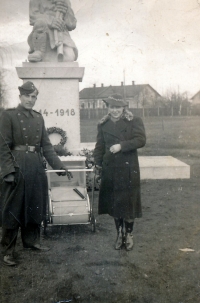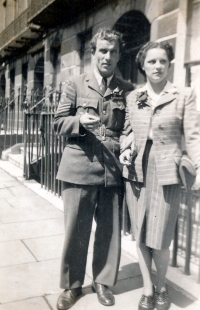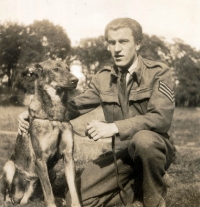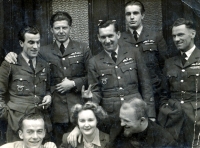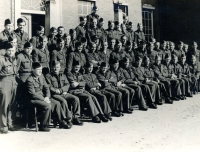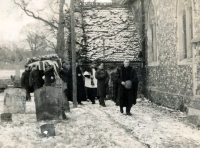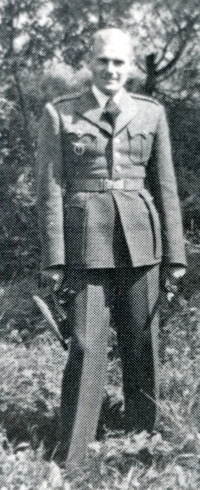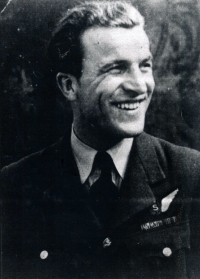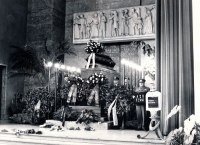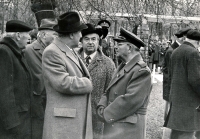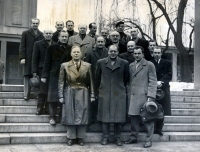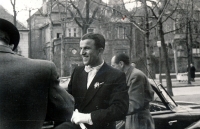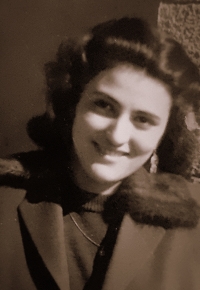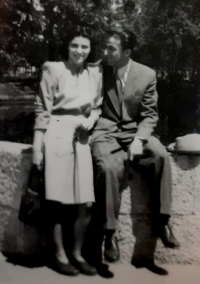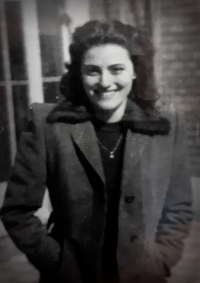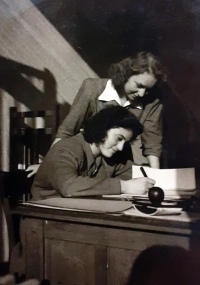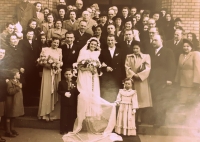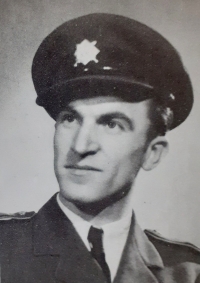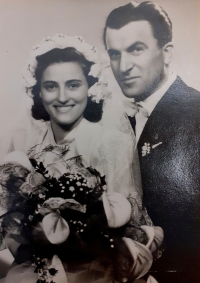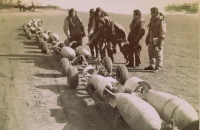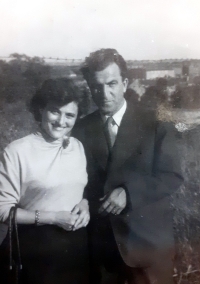All the RAF pilots were ready to come and arrest them

Stáhnout obrázek
Marie Mikulenková, maiden name Šlauková, was born on 11 September 1927 in Budapest. Her father, Peter Šlauka, was an operational employee of the Czechoslovak embassy in Budapest. She spent her childhood alternately in Budapest and Slovakia, where both her parents came from. Marie studied at the Business Academy in Bratislava, graduating late at the end of the summer of 1945 under rather difficult circumstances related to the end of the war. She recalls some events from the summer of 1944 when the Slovak National Uprising broke out. She lived through the end of the war in Bratislava, hiding during the bombing of the city, witnessing the arrival of Red Army soldiers and the return of prisoners from concentration camps. In September 1945, she began working in the administration of the Office of the Czechoslovak Delegation at the Allied Control Commission in Budapest. It was where she first met Emil Mikulenka, a pilot in the 311th Czechoslovak Bomber Squadron of the British Royal Air Force during the war. In Budapest, he worked at the office as a cypher and telegraph operator. Marie and Emil married in 1948 and returned to Czechoslovakia shortly afterwards, where the Communists had taken over. The Communist coup fundamentally changed their lives. As a member of the Western Resistance, Emil Mikulenka was systematically persecuted by State Security, and in 1951, he was forced to leave the Ministry of Foreign Affairs where he had been employed since 1945. Until 1968, he worked as a worker at Avia Letňany. The family with two small children was under constant pressure during the 1950s, and Emil Mikulenka was constantly threatened with arrest. At the end of the 1960s, he was partially rehabilitated and enabled to return to the ministry. In 1967, the whole family went to the Czechoslovak embassy in Kenya, where Emil Mikulenka worked as a housekeeper and Marie as a clerk. In the so-called normalisation years, they found themselves out of favour again. Emil Mikulenka was fully rehabilitated and promoted to the rank of colonel only in 1990 and died three years later. Marie Mikulenková‘s second partner was Miroslav Paseka, a veteran of the Second World War who, like Emil Mikulenka, fought against the Nazis in the British army. Marie followed him to Great Britain, where they lived together for 15 years. After his death, she returned to the Czech Republic. In 2024, she lived in Prague.
